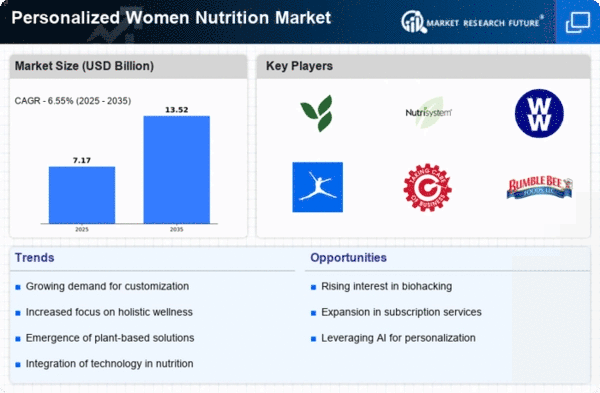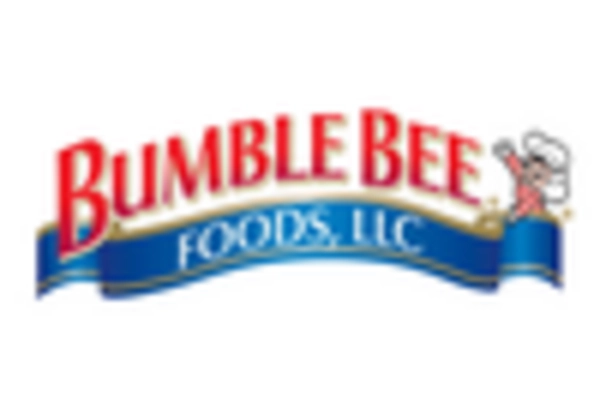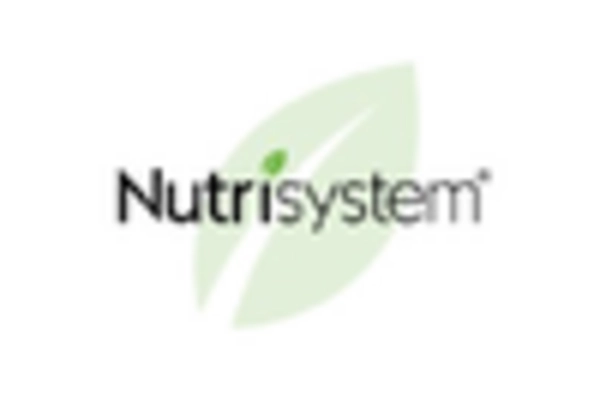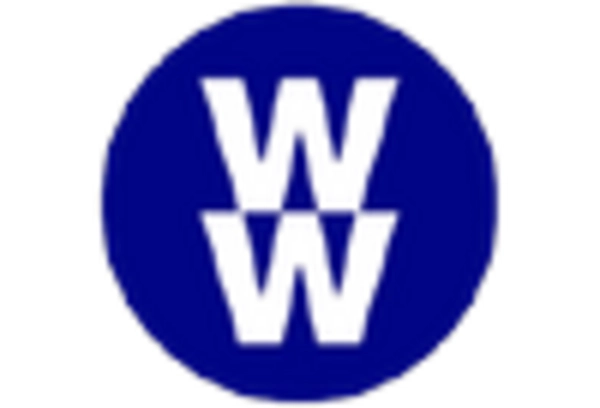North America : Market Leader in Nutrition
North America is the largest market for personalized women nutrition, holding a significant share of 3.5 billion in 2024. The growth is driven by increasing health awareness, a rise in chronic diseases, and a growing preference for tailored nutritional solutions. Regulatory support from health organizations further catalyzes this trend, encouraging innovation and consumer trust in personalized products.
The competitive landscape is robust, with key players like Herbalife, Nutrisystem, and Weight Watchers leading the charge. The U.S. is the primary market, characterized by a diverse range of offerings that cater to various dietary needs. The presence of technology-driven solutions, such as MyFitnessPal and Care/of, enhances consumer engagement and personalization, solidifying North America's position as a market leader.
Europe : Emerging Market Dynamics
Europe is witnessing a growing interest in personalized women nutrition, with a market size of 1.8 billion. Factors such as increasing disposable income, a shift towards preventive healthcare, and rising awareness of nutrition's role in health are driving this growth. Regulatory frameworks in the EU promote transparency and safety, encouraging innovation in personalized nutrition products.
Leading countries include Germany, France, and the UK, where consumer demand for tailored nutrition solutions is on the rise. The competitive landscape features established brands and new entrants focusing on niche markets. Companies like Herbalife and Nutrisystem are expanding their reach, while local startups are innovating with unique offerings. This dynamic environment positions Europe as a key player in the global market.
Asia-Pacific : Rapid Growth Potential
Asia-Pacific is emerging as a significant player in the personalized women nutrition market, with a size of 1.2 billion. The region's growth is fueled by increasing urbanization, rising disposable incomes, and a growing focus on health and wellness. Regulatory bodies are beginning to recognize the importance of personalized nutrition, paving the way for innovative products tailored to local dietary preferences.
Countries like China and India are at the forefront, with a burgeoning middle class seeking personalized health solutions. The competitive landscape is evolving, with both The Personalized Women Nutrition share. Companies are leveraging technology to offer customized nutrition plans, making Asia-Pacific a promising market for future growth.
Middle East and Africa : Untapped Market Opportunities
The Middle East and Africa represent an untapped market for personalized women nutrition, with a market size of 0.23 billion. The region is experiencing a gradual shift towards health-conscious living, driven by rising obesity rates and lifestyle-related diseases. Regulatory initiatives are beginning to support the development of personalized nutrition products, fostering a more informed consumer base.
Countries like South Africa and the UAE are leading the charge, with increasing investments in health and wellness sectors. The competitive landscape is still developing, with local and international brands exploring opportunities. As awareness grows, the potential for personalized nutrition solutions tailored to regional tastes and preferences is significant, making this region a future growth frontier.
















